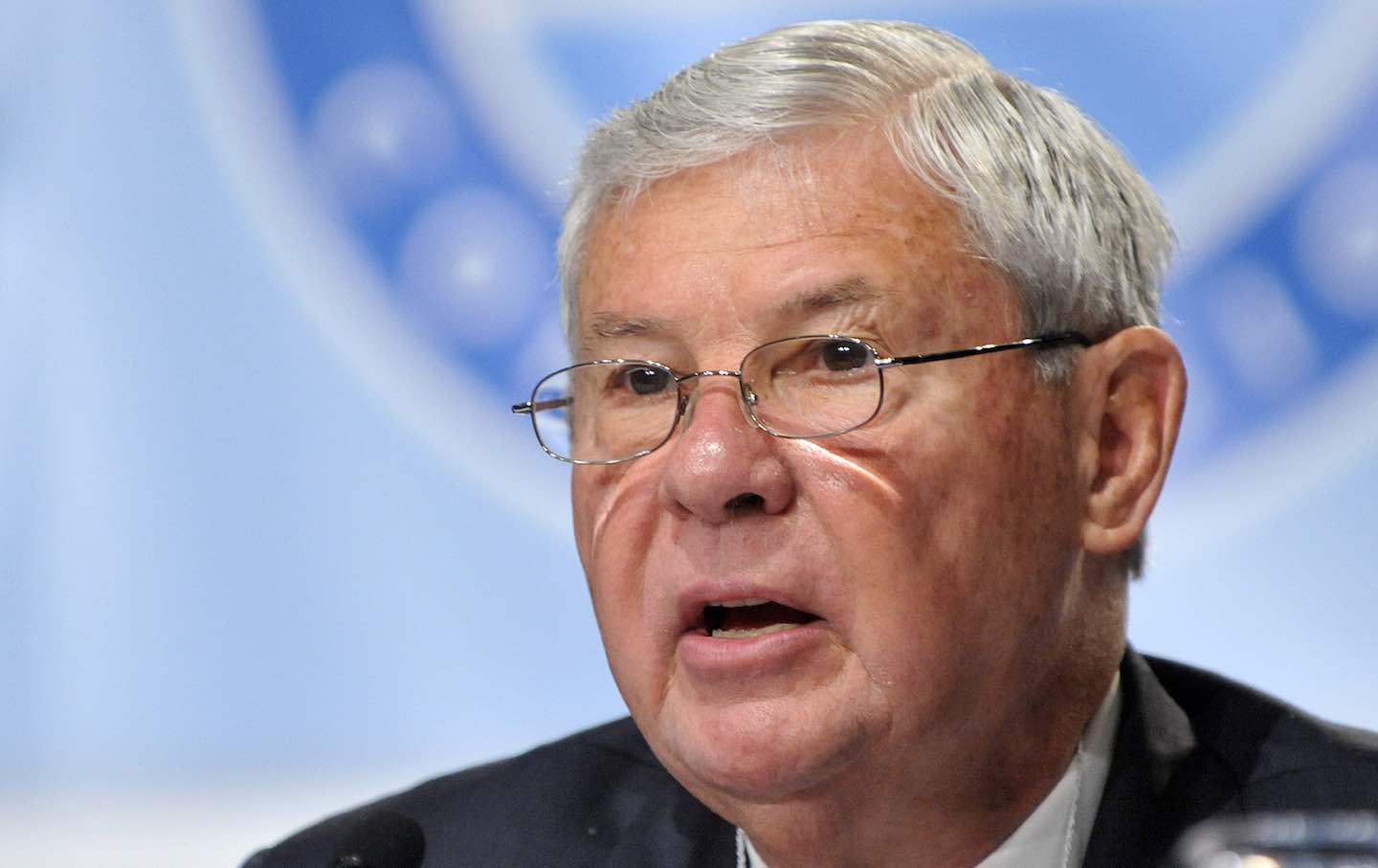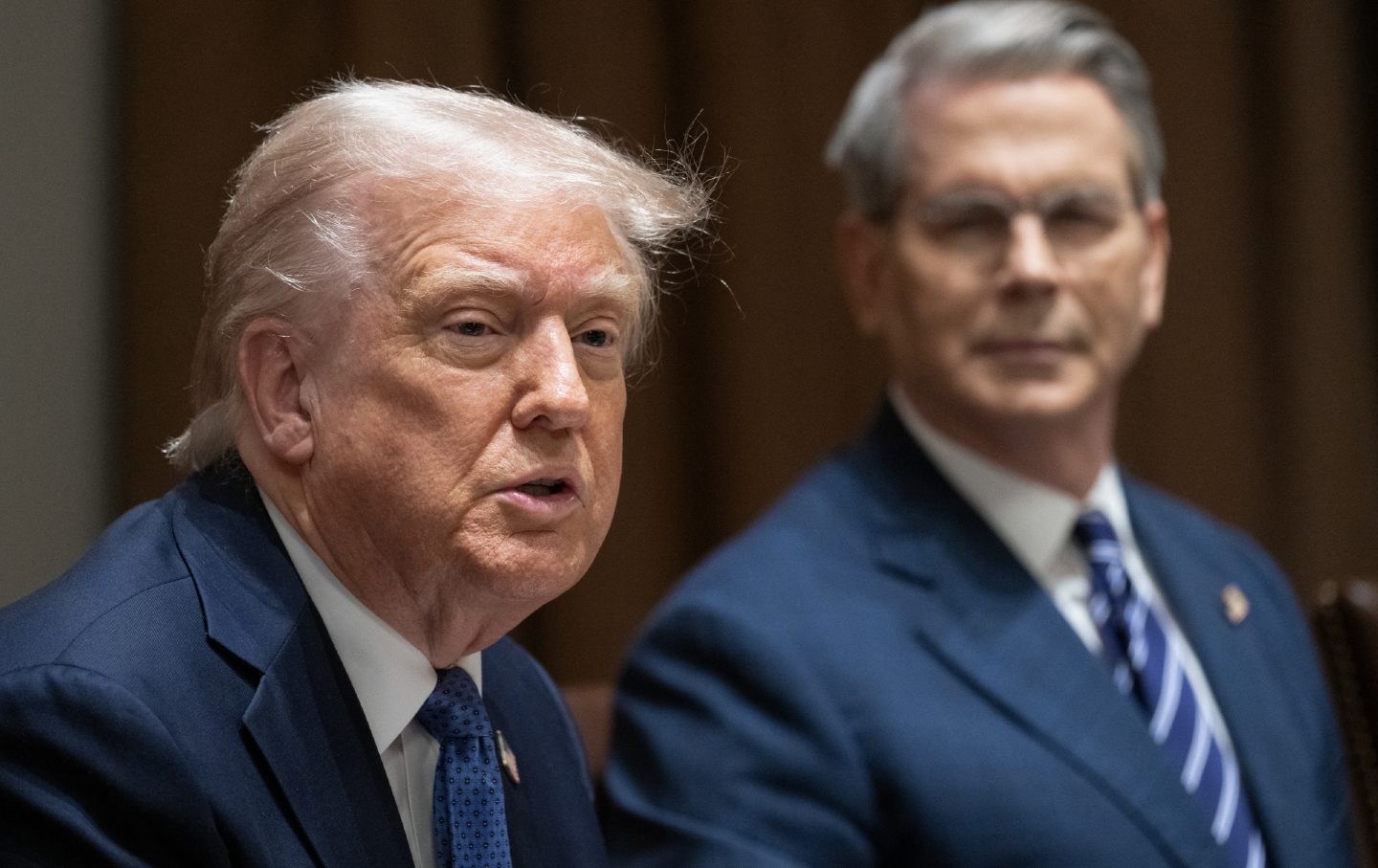Bob Graham Knew Iraq Would Be a Quagmire Even as Most Democrats Fell for Cheney’s Lies
The former Senate Intelligence Committee chair saw through Republican efforts to manipulate Congress into authorizing a war that should never have been fought.

Bob Graham, former US senator from Florida, died Tuesday at age 87.
(Photo: Jay Mallin / Bloomberg News)Former Florida Senator Bob Graham, who has died at age 87, was a prominent mainstream Democrat with presidential ambitions in fall of 2002. But unlike most of his contemporaries in the upper echelons of the Senate Democratic Caucus at that critical stage in the first term of President George W. Bush and Vice President Dick Cheney, Graham refused to accept the Republican administration’s bogus arguments for invading and occupying Iraq.
For all their later protestations about having been misled and ill-advised, the fact remains that Democrats who should have known better did Cheney’s bidding at the point when a disastrous war might have been averted.
Massachusetts Senator John Kerry, who went on to become the Democratic nominee for president in 2004, voted to authorize the Bush-Cheney administration to use military force against Iraq—after Cheney announced, without evidence, in August of 2002, that “there’s no doubt that Saddam Hussein now has weapons of mass destruction. There is no doubt he is amassing them to use against our friends, against our allies, and against us.”
So did North Carolina Senator John Edwards, the Democratic nominee for vice president in 2004 who twice sought the party’s presidential nod.
So did New York Senator Hillary Clinton, who went on serve as secretary of state and later became the Democratic nominee for president in 2016.
So did Delaware Senator Joe Biden, who bid for the Democratic presidential nomination in 2008, became Barack Obama’s vice president, and in 2020 was elected as the 46th president of the United States.
They all got it wrong.
Graham, a former governor of Florida and three-term senator at the time that Cheney and his cabal were promoting their Big Lie, would later explain his opposition by saying, “I am not a pacifist. In this instance, it was the wrong target.”
How did he know? Graham was the chairman of the Senate Select Committee on Intelligence. He called for, organized, and cochaired the Joint Inquiry into Intelligence Community Activities Before and After the Terrorist Attacks on September 11, 2001, the comprehensive investigation by the Senate committee that he led and the House Permanent Select Committee on Intelligence into 9/11. There was, literally, no one in the Senate, no Democrat, no Republican, who knew more about the intelligence—or, to be more precise, the lack of intelligence—that Cheney and Bush used to make a case for what turned out to be an unnecessary and illegal war.
That led Graham to cast what was, arguably, the most compelling of the 23 Senate votes against the authorization of the use of military force that the Bush-Cheney administration demanded in the fall of 2002. There were other prominent Democratic foes—Massachusetts Senator Edward Kennedy and West Virginia Senator Robert Byrd, in particular. But of the brave band of senators who refused to hand a blank check to the administration, Graham’s vote stood out because of his role as head of the intelligence committee.
After that fateful vote on October 11, 2002, as Cheney ramped up his advocacy for war—going so far as to claim, on the eve of the invasion that, “My belief is we will, in fact, be greeted as liberators”—Graham kept asking questions. He demanded National Intelligence Estimates and briefings from the relevant agencies. Instead of hearing an argument for going to war, Graham said, “I found the NIE and the circumstances which surrounded it to be the document that provided, to me, the clearest insight that the intelligence was being manipulated in order to make a particular case rather than being used to inform judgment as to what case should be made.”
It was that understanding that Graham took on the presidential campaign trail in the summer and fall of 2003. As a candidate for the Democratic nomination, he bluntly declared, “The quagmire in Iraq is a distraction that the Bush administration, and the Bush administration alone, has created.” Arguing that there was a “Nixonian stench” around the Bush-Cheney White House, he even raised the prospect of impeachment, saying, “If the standard of impeachment that the Republicans set for Bill Clinton—a personal, consensual relationship was the basis for impeachment—would not a president who knowingly deceived the American people about something as important as whether to go to war meet the standard of impeachment?”
Unfortunately, in politics, taking issues of war and peace seriously enough to get things right is not necessarily a route to the Democratic presidential nomination—as Graham and fellow anti-war Democrats Dennis Kucinich and Howard Dean learned during the course of the 2004 campaign. Most of Graham’s fellow Democrats were not ready to embrace his message, or his candidacy. Nor was most of the media. The Floridian ended his bid before the first caucuses and decided against seeking reelection to the Senate in 2004.
Graham was increasingly well-regarded as an elder statesman, especially as inquiries, studies, and news reports confirmed the wisdom of his anti-war stance.
While other top Democrats struggled to explain their failure to check and balance Cheney and Bush, Graham would explain his challenging of the administration in 2002 and 2003 by saying, “I never wavered from my belief that this was a distraction that was going to come to a bad end in Iraq and an even worse end in Afghanistan.”
Take a stand against Trump and support The Nation!
In this moment of crisis, we need a unified, progressive opposition to Donald Trump.
We’re starting to see one take shape in the streets and at ballot boxes across the country: from New York City mayoral candidate Zohran Mamdani’s campaign focused on affordability, to communities protecting their neighbors from ICE, to the senators opposing arms shipments to Israel.
The Democratic Party has an urgent choice to make: Will it embrace a politics that is principled and popular, or will it continue to insist on losing elections with the out-of-touch elites and consultants that got us here?
At The Nation, we know which side we’re on. Every day, we make the case for a more democratic and equal world by championing progressive leaders, lifting up movements fighting for justice, and exposing the oligarchs and corporations profiting at the expense of us all. Our independent journalism informs and empowers progressives across the country and helps bring this politics to new readers ready to join the fight.
We need your help to continue this work. Will you donate to support The Nation’s independent journalism? Every contribution goes to our award-winning reporting, analysis, and commentary.
Thank you for helping us take on Trump and build the just society we know is possible.
Sincerely,
Bhaskar Sunkara
President, The Nation








